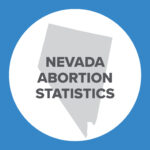Medical and Legal Experts Testify in Support of Ohio’s Pain-Capable Unborn Child Protection Act – Full Written Testimonies
On June 17, 2015, the Ohio Senate Health and Human Services Committee held a hearing on S.B. 127, the state’s Pain-Capable Unborn Child Protection Act. Among the experts testifying in support of the bill were Angelina Baglini Nguyen, J.D., a legal expert and Associate Scholar of the Charlotte Lozier Institute (CLI) and Dr. Sheila Page, D.O., an osteopathic physician, board certified in Neuromusculoskeletal Medicine.
CLI thanks both Angelina B. Nguyen and Dr. Sheila Page for their permission to reprint the full text of their testimonies here. In addition, CLI’s Vice President and Research Director, Dr. David A. Prentice, Ph.D., submitted his testimony below in writing.

Written Testimony of David A. Prentice, Ph.D.
Excerpt:
You may hear that that the science of fetal pain is disputed, quoting a JAMA review from 2005 that claims pain sensation does not develop until 29-30 weeks gestation, and requires development of a functioning cortex in the brain. That study, while widely quoted, was published by physicians with significant ties to the abortion lobby. That 2005 paper ignored numerous studies showing that the thalamus, not the cortex, is needed for pain sensation. In fact, children born without a cortex are conscious. The 2005 JAMA review also didn’t address other evidence such as studies demonstrating that premature babies feel pain as early as 20 weeks; its biased conclusions have been discredited.
Continue reading HERE.
Written Testimony of Angelina Baglini Nguyen, J.D.
Excerpt:
The United States is one of only seven countries in the world that permit elective abortion past 20 weeks.
… An unborn child’s ability to feel pain at twenty weeks is a compelling state interest that the Court can accommodate with or without the viability rule. International law compels us to come closer to the norm of removing elective abortion from the territory of late pregnancy. This piece of legislation is neither extreme nor unreasonable, but is a well-reasoned, well-supported, and well-liked limitation on the boundaries of elective abortion in America.
Continue reading HERE.
Written Testimony of Sheila Page, D.O.
Excerpt:
The fetus is physiologically equipped to perceive pain, and demonstrates physiological responses consistent with pain perception. These responses are seen at 7.5 weeks and continue to develop until birth. It is reasonable to conclude that by 8 weeks the developing human is capable of pain perception. Our ability to relate to this possibility is limited by our own narrow vision, lack of understanding, and sometimes our unwillingness to perceive that which we cannot readily see. As physicians, we are obligated to anticipate potential suffering and take action to prevent or alleviate it.
Continue reading HERE.





























